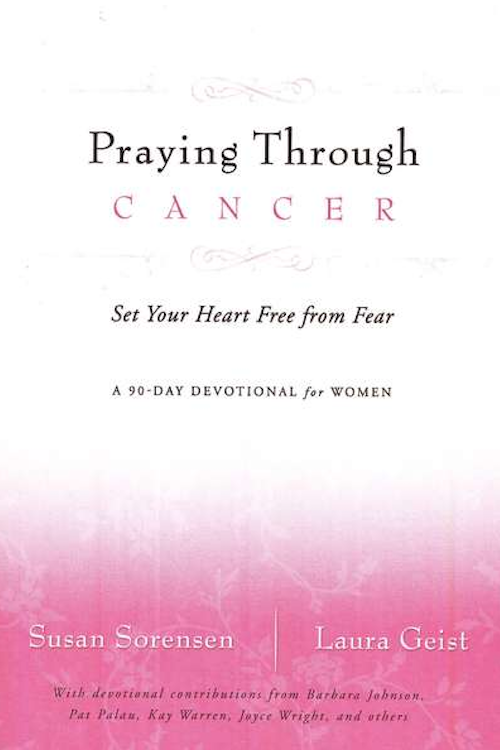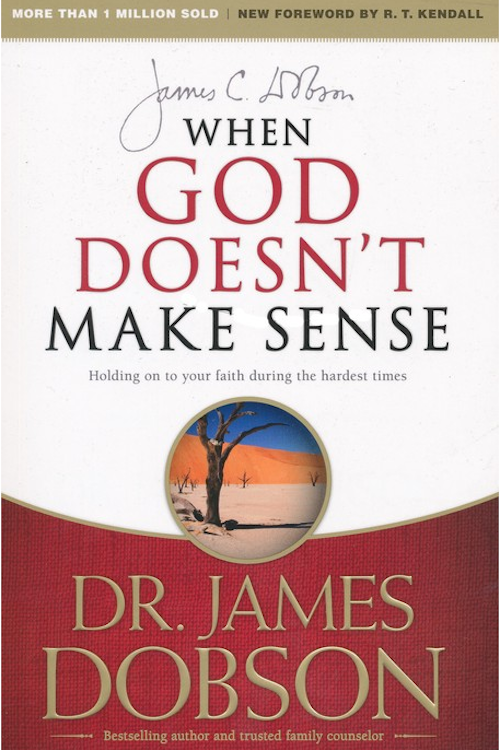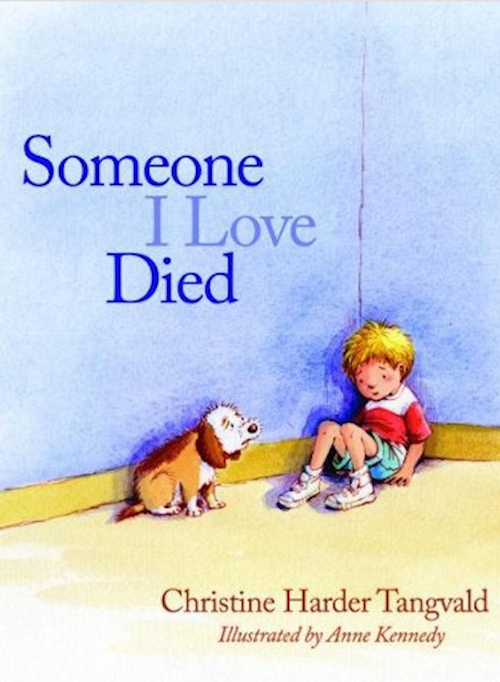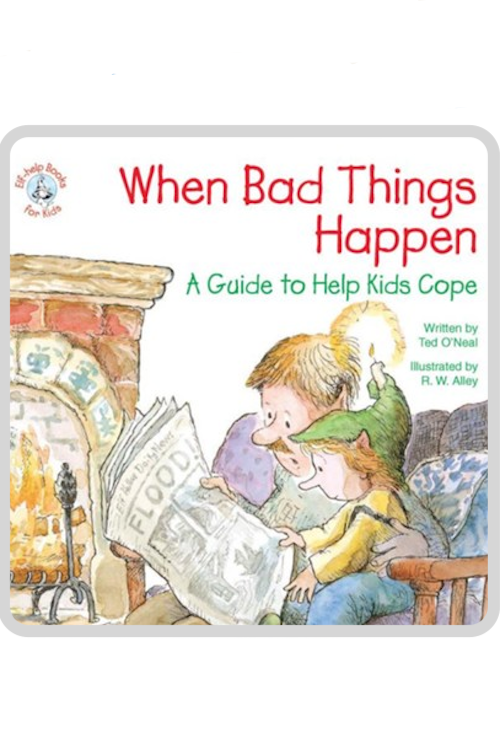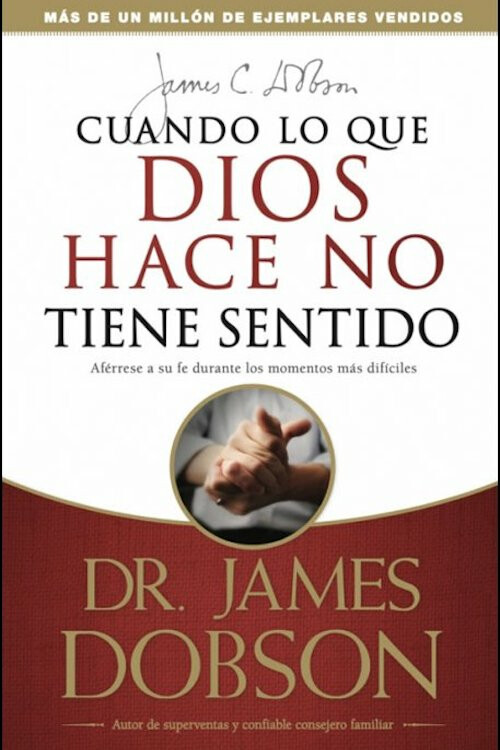Grieving

Losing someone--whether by death, divorce, or separation--can be hard. Grief is difficult part of life, but by understanding the process, you can reach the hope on the other side.
Understanding Grief
Nothing hurts like losing someone you love due to death, divorce, or separation. Similar feelings often surface after a major life change such as job loss or a move. The ache inside can feel as if your soul will crush under the weight of a deep, paralyzing sorrow. You may find yourself asking how a loving God could allow such a painful thing to happen The dull sadness often bleeds into denial or anger. Grief is unpredictable, affecting each of us in slightly different ways. While it may not ease the pain, understanding grief is normal can help us cope a little better when we lose a special person or go through a significant change.
HOW GRIEF FEELS
If you feel like you are losing your grip on reality, you might be a perfectly sane person enduring the confusion of grief. Perhaps you suffer irrational fear, dread or even paranoia. You may feel empty or numb like you are in shock. Grief even causes some people to experience trembling, nausea, breathing difficulty, muscle weakness, loss of appetite, or insomnia. Feelings of anger can also surface, even if there is nothing in particular to be angry about. Almost everyone tortures themselves with guilt by asking what they did wrong, how they might have prevented the loss, or some other form of self-condemnation. In short, grief makes us feel like our emotions have gone haywire because, in many ways, they have. Over time, however, you will regain a measure of equilibrium.
WHY GRIEF HURTS
God gave us the gift of pain so that we can react when something goes wrong. We limp when a leg bone is out of joint to protect us from further damage. In similar manner, losing an important person or going through a significant change can cause our entire system to react as it recognizes that something is wrong. You might say that the confusing emotions and ache in the pit of your soul are part of grief’s “limp.” The longer and more intimate the loss, the more severe your “limp” will be. The severity and length of your pain is a testimony to the value of the person lost or the importance of the situation that changed.
WHAT GRIEF MEANS
God made us for intimacy and life – not separation and death. When we grieve, our deepest selves declare that something is wrong with this broken world. Death, divorce and separation were not part of God’s original plan for humanity. The Bible tells us these things came into our experience as a result of disobedience when our first parents ate the forbidden fruit. “For when you eat of it you will surely die” (Genesis 2:17). Ever since the day mankind left the perfection of paradise we have known something is wrong. And so our bodies and emotions react against what should not be.
HOW GRIEF HEALS
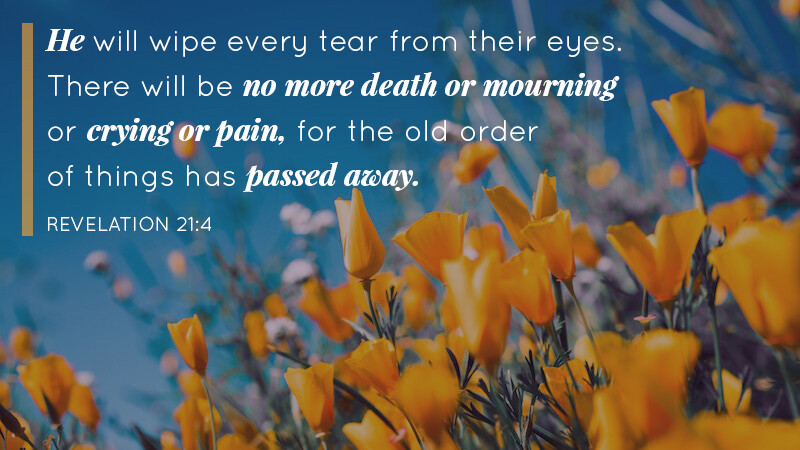 Even though it may not feel like it, grief can be a source of great hope. Your reaction against what is wrong comes from a deep yearning for things to be made right. Loss can open us to ultimate wholeness and restoration. While grieving the death of his wife, C.S. Lewis asked “What do people mean when they say, ‘I am not afraid of God because I know He is good?’ Have they never been to a dentist?” The dentist’s drill, while an instrument of intense pain, ultimately brings health. The drill of grief fosters healing in our lives by raising ultimate issues and eternal questions such as “Who is my true beloved?” and “Where is my real home?” As believers, we know that a much better day is coming when God himself will wipe every tear from our eyes. On that day “There will be no more death or mourning or crying or pain, for the old order of things has passed away” (Revelation 21:3-4).
Even though it may not feel like it, grief can be a source of great hope. Your reaction against what is wrong comes from a deep yearning for things to be made right. Loss can open us to ultimate wholeness and restoration. While grieving the death of his wife, C.S. Lewis asked “What do people mean when they say, ‘I am not afraid of God because I know He is good?’ Have they never been to a dentist?” The dentist’s drill, while an instrument of intense pain, ultimately brings health. The drill of grief fosters healing in our lives by raising ultimate issues and eternal questions such as “Who is my true beloved?” and “Where is my real home?” As believers, we know that a much better day is coming when God himself will wipe every tear from our eyes. On that day “There will be no more death or mourning or crying or pain, for the old order of things has passed away” (Revelation 21:3-4).CHILDREN AND GRIEF
If you have children impacted by the pain of a death, divorce, separation or change, it is important that you remain attentive to their needs. You are God’s gift to them as they endure a loss that may be beyond comprehension. It is not your role to explain why it has happened. It is your role to be an agent of comfort and grace, allowing them to experience the confusing emotions of grief in the safety of your patient company.
recommended books
Praying Through Cancer
By Susan Sorenson and Laura Geist
You don’t have to face cancer alone. Praying Through Cancer is a collection of stories by women who have faced cancer and, with triumphant spirits, found comfort and sometimes even joy in the midst of it. Traumatized and terrified of cancer? Perhaps you have been diagnosed yourself, or you have a friend or family member who is battling with the disease. You know you must face it—but you do not have to face it alone. Praying Through Cancer is a collection of stories by women who have faced cancer and, with triumphant spirits, found comfort and sometimes even joy in the midst of it. For these women, cancer was a comma, not a period, in the sentences of their lives. Why? Because they put their faith in the Lord and He strengthened them beyond comprehension. You will laugh and you will cry, but best of all, you will know...you are not alone.
When God Doesn't Make Sense
By Dr. James Dobson
With more than one million copies sold, When God Doesn’t Make Sense is an immensely practical book for those who are struggling with trials and heartaches they can’t understand. Why does disease, natural disaster, divorce, rejection, death, or some other sorrow seep into our lives when we are trying to serve the Lord? It just doesn’t seem fair! This book deals unflinchingly with life’s most troubling question—“Why?” Drawing on his long experience as a Christian psychologist and family counselor, Dr. Dobson brings hope to those who have almost given up. When God Doesn’t Make Sense also helps believers avoid the “betrayal barrier”—the sense that God is abandoning them amid the storms of life. Now with a new foreword by R. T. Kendall.
Someone I Love Died
By Christine Harder Tangvald
From best-selling and beloved author Christne Harder Tangvald comes an updated and revised edition of her classic book of comfort for grieving children, filled with heart-healing words, fresh watercolor illustrations, and practical resources that help adults guide children through loss. First published in 1988, Someone I Love Died has long comforted the hearts of children 4 to 8 who have lost someone close. It gently leads children through grief with age-appropriate words and solid biblical truth that understands a child's hurting heart. The added interactive resources ensure this book will become a treasured keepsake. Once complete, children create a memory book of the loved one's life. And it offers grown-ups a tool that turns what could be a difficult season into a meaningful time of healing.
When Bad Things Happen
By Ted O'Neal
Truly bad things happen in life. And while we cannot shelter children from every hurt and harm, we can reassure them that they, like the little elves in these pages, will always be loved and cared for. We can teach children the skills needed for coping with life’s biggest challenges and changes. And we can restore children’s trust that life, after all, is good.
En Español
Cuando lo que Dios hace no tiene sentido
By Dr. James Dobson
Un libro extraordinariamente práctico para los que luchan con pruebas y quebrantos que no pueden comprender. ¿Por qué la enfermedad, el divorcio, el rechazo, la muerte, o la tristeza han de llegar a nuestras vidas cuando estamos tratando de servir al Señor? ¡Esto no parece justo! Este libro trata sin rodeos con la pregunta más inquietante de la vida: el terrrible "¿Por qué?" Basado en su larga experiencia en sicología cristiana y consejería familiar, el Dr. Dobson trae esperanza a aquellos que están a punto de rendirse. Cuando lo que Dios Hace no Tiene Sentido ayuda también a los creyentes a evitar "la barrera de la traición", la sensación de que Dios los ha abandonado en medio de las tempestades de la vida.


